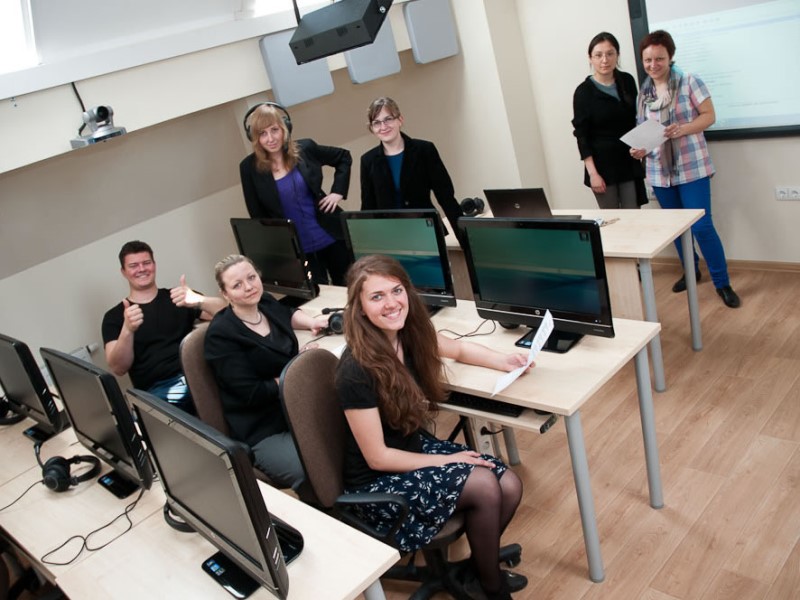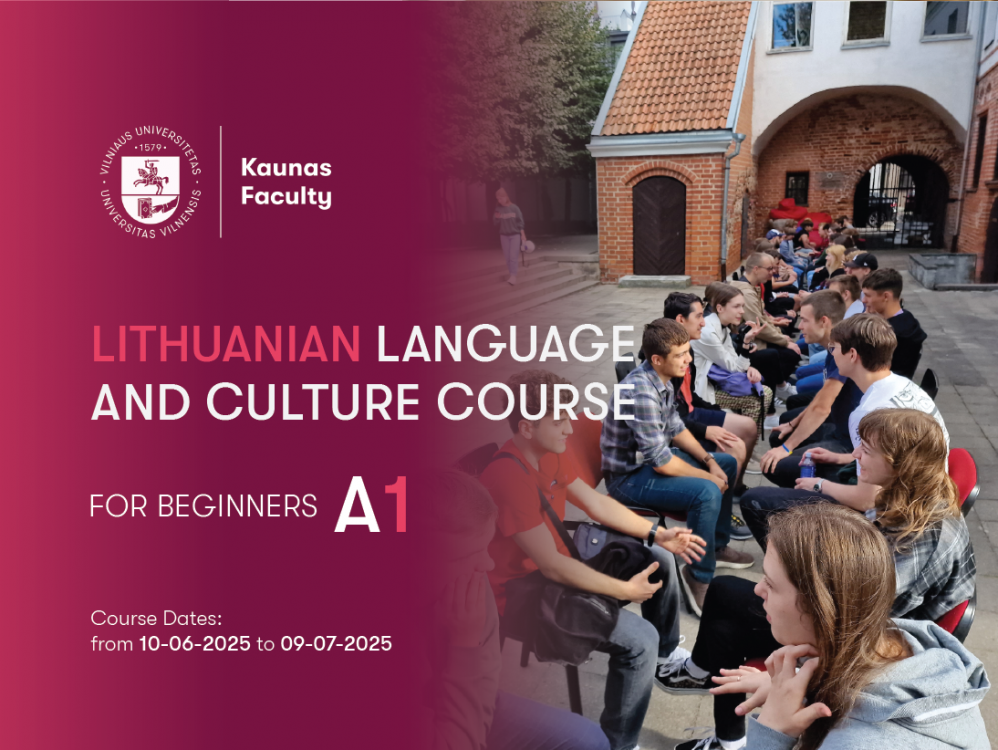About the programme
The study programme is coordinated by the Institute of Language, Literature and Translation Studies
ABOUT THE PROGRAMME
The aim of the MA study programme English Linguistics is to prepare specialists who have vast knowledge of linguistic theories and research methodologies, are able to approach them critically and apply in their individual linguistic research.

Peculiarities of the study process
MA students of English Linguistics have an ample opportunity for their scientific activities by writing articles on their own or in collaboration with the professors, organising and participating in scientific conferences. The final semester is dedicated to academic research and writing of the MA thesis. No internship is planned in the programme.
Competences to be developed
After completing the programme, graduates will:
- possess knowledge in the fields of General Linguistics, Typology of Languages, Evolution of Germanic Languages and Germanic Linguistics;
- be able to analyse and interpret linguistic phenomena from interdisciplinary perspective;
- be able to apply specific theories, methods and research technologies in the field of philology;
- recognise the specificity of intercultural communication in solving the related issues;
- gain competence in performing individual research by developing a creative approach to contemporary methods of analysis by recognising their horizons and possible limitations;
- be able to assess the research results and determine their reliability;
- be able to work independently and in a team;
- develop demand for new knowledge and skills in the process of life-long learning.
Subjects taught
|
Year 1,Semester 1 |
Year 1, Semester 2 |
|
block: Compulsory Courses
block: Elective Courses
|
block: Compulsory Courses
block: Elective courses
|
|
Year 2, Semester 3 |
Year 2,Semester 4 |
|
block: Compulsory Courses
|
block: Compulsory Courses
Final work or (and) final examinations
|
Career opportunities
Graduates of English Linguistics will be qualified to pursue their future career of academic researcher or lecturer by performing research in various learning institutions, organisations engaged in humanities and cultural activities or other authoritative institutions which require linguistic knowledge and skills in scientific research.
Admission requirements
The prospective students of the MA study programme English Linguistics are expected to have a Bachelor degree preferably in Philology, but graduates from any other study area are accepted as well. Graduates of a Bachelor study programme in Philology are accepted according to the admission grade which is calculated as follows:
- assessment of the final thesis and /or final examination;
- weighted average of the marks from the diploma supplement.
Graduates with a Bachelor degree in other study areasare accepted according to the admission grade which is calculated as follows:
- weighted average of the marks from the diploma supplement;
- assessment of the entry examination covering a range of linguistic courses obligatory for the Bachelor study programme English Philology.
Additional grades for applicants are given for their scientific publications and reports presented in national and international conferences.
More information - German Philology Department:
 |
HEAD OF DEPARTMENT Muitinės str. 8, Kaunas, 303 kab.
|
|
ADMINISTRATOR Email: |










